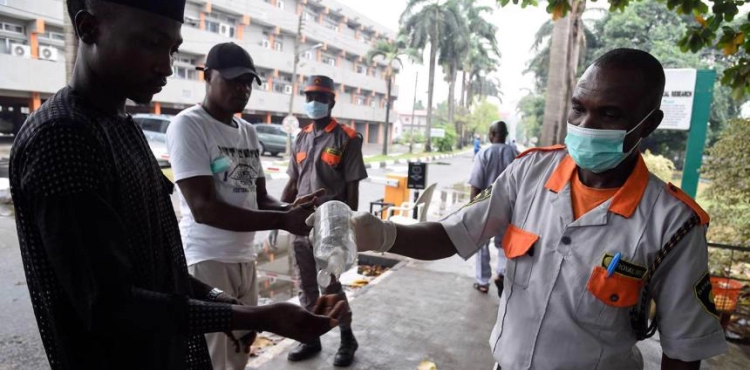A lack of equipment and beds, and doctors and nurses who do not receive enough wages, this is the case in health systems in Africa, which do not have many ways to protect themselves from the Corona virus, which is clouded The continent.
The poorest continent on Earth so far has confirmed about 1,800 infections and 57 deaths, which is a low number compared to Europe, the Middle East and Asia, but it is rising rapidly because infection checks are still not sufficient.
In Nigeria, the most populous country in the region, doctors complain that years of underfunding and neglect have weakened the health system.
"No country is really prepared for this, even countries with very sophisticated health care systems are calling for help," Yusef Tanko Sonono, head of the health committee in the Nigerian parliament, told AFP.
"In a low-resource country like ours, the health-care system is already facing serious problems."
Although the government evaluates more isolation wings and insists that respirators are on the "shopping list", it has not mentioned the number of devices present and Sonono insists that the capacity is "totally insufficient".
"We need to move faster, but one of the main obstacles is global travel restrictions which means that the ability to get equipment is very limited," he said.
Francis Vadoyel, president of the Nigerian Doctors´ Syndicate, complained that most health facilities across the country lacked even clean running water.
His organization asked doctors to cancel their strike measures to protest unpaid wages after they were discharged from hospitals in the capital Abuja last week - but he insists the government must do more to provide protection equipment.
"We do not have suitable masks, or at least we need to assess how many we have," he told AFP.
"We are doing this job and preparing," he added.
Finding numbers for intensive care facilities in Africa is hard to find, and the World Health Organization itself said last week it was still trying to assess the continent´s capacity in this area.
The director of the organization, Machidiesso Moiti, said in Africa that the intensive care beds were "in great shortage" and even countries with more advanced systems like South Africa would suffer.
"They also realize that, given the evolution in terms of the number of cases, and if the situation explodes in terms of numbers, and large numbers of people suffer from acute diseases and their condition reaches the stage of danger, then this will be a challenge indeed," he said.
And in many places, the situation is already more serious.
A Kenyan Health Ministry official, who asked not to be identified, told France Press that throughout the country of about 50 million units, no more than 100 ICUs "operate at any time."
In Cameroon, which has recorded more than 50 injuries, an aid worker said the country "does not have the capacity to deal with serious cases".
The central African country, like many other countries in the region, is already witnessing armed conflicts that have displaced people to camps prone to the spread of other diseases such as cholera.
As in the conflict-torn Central African Republic and Somalia, both of which have reported cases of coronavirus, the rate in Cameroon is a doctor for every 10,000 citizens.
"If the epidemic spreads, it will be dangerous," said the aid worker, on condition of anonymity.
Decades of government mismanagement of the economy have brought health services in Zimbabwe to its lowest levels.
Unfortunately, Norman Matara, Secretary-General of the Society of Human Rights Physicians in Zimbabwe, warned, "The system itself is suffering from excessive and insufficient pressure to deal with the Corona virus."
In West Africa, which dealt with the devastating Ebola epidemic from 2013-2016, health services depend on the facilities set up to deal with Ebola.
Albert Osoho Eddy, an official at the Ministry of Health, said that Ivory Coast, which has managed to avoid the spread of Ebola by closing its borders with neighboring countries, already has isolation units set up on its borders.
"The personnel are training and there is some stock of protection equipment, but we still need more," he told AFP.
But in Abidjan, the country´s economic hub, the infectious disease unit at the main hospital is still looking to strengthen the intensive care beds from 20 to 70 beds.
"We are investigating with all regions to assess their capabilities and the needs of people and equipment," he said.
"But many regional hospitals are undergoing renovation since 2019 and they are not scheduled to open until 2021," he added.
In the Sahel region, Mali has only 56 breathing apparatus in a country of about 19 million people, according to the latest figures from the Ministry of Health. "We are preparing for the worst. The means at our disposal do not enable us to provide support to every financier," said Prime Minister Bobo Cisse.












